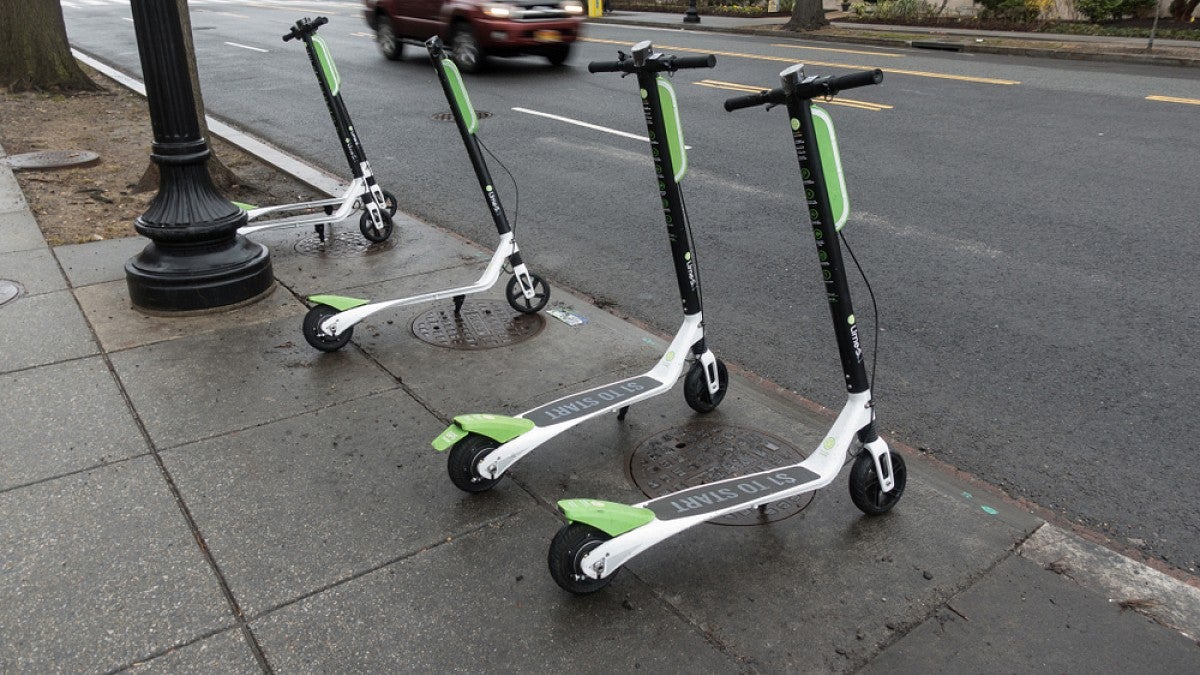In response to nationwide trends showing electric scooter safety and liability issues, the University of Oregon has proactively put a temporary ban on rented electric scooters on campus property.
The temporary, emergency policy went into effect Nov. 6 and lasts through April 30, 2019.
The move allows the university to thoughtfully plan how rented, electric or motorized scooters might be included into the campus transportation system, while avoiding the safety and environmental problems that have affected other communities and colleges.
"Our hope is to pause before this gets started locally," said David Reesor, director of UO Parking and Transportation. "We need time to think how this might work in our community and set up solutions that protect the people, property and environment at the UO. It will be important that we collaborate with campus partners and outside agencies, including the city."
The policy does not apply to electric scooters owned by the operator. The policy also does not affect bicycles of any kind, nonmotorized scooters or electric scooters used to assist people with mobility restrictions.
During the ban, any third-party-owned electric scooter found on UO property will be impounded and a fee charged to the owning company. People operating this type of scooter would be directed to take the scooter off campus property.
Electric or motorized scooters have quickly become popular, and rental companies have capitalized on their novelty, flooding some cities and campuses with their scooters. The scooter's electric power is only activated by a paid rental.
Unlike the blue bikes in the PeaceHealth bike-share program, most rental scooters are “dockless,” meaning that riders may leave them anywhere without consequence. That includes places that create safety hazards and impede emergency exits, building entries, driveways, crosswalks, wheelchair ramps and sidewalks.
Communities where scooter rental programs have been launched without thoughtful consideration have encountered other problems as well. They can move surprisingly fast, and can accelerate and stop suddenly. Riders can use them without having to take any instruction.
Inexperienced riders may brake hard, causing too sudden a stop, and are unaware of, or ignore, state laws such as that requiring scooter riders to wear helmets and prohibiting scooter use on sidewalks and walkways. As a result, many communities have reported an increase in collisions and injuries associated with the scooters.
Damage to property and the environment resulting from e-scooter vandalism has also been reported, as have flaws with rechargeable batteries that can create fire or explosion hazards.
Further, by the terms of the rental agreements, liability for even accidental damages caused by or to a scooter is the problem of the renter, not the company. Unfortunately, in other areas this has incentivized renters to flee the scene after a collision, leaving injured people or owners of damaged property without recourse.
"In speaking directly with other campuses and other cities, we have real concerns for the safety and well-being of e-scooter riders as well as pedestrians and bicyclists," Reesor said. "This temporary policy gives us time to create a fair and reasonable option before scooters start showing up in large numbers. It protects individuals as well as our institution. While our goal is to encourage sustainable transportation options, we must assure that travel devices are operated and stored safely, too."
For more information about the policy, contact Parking and Transportation at 541-346-5444.


